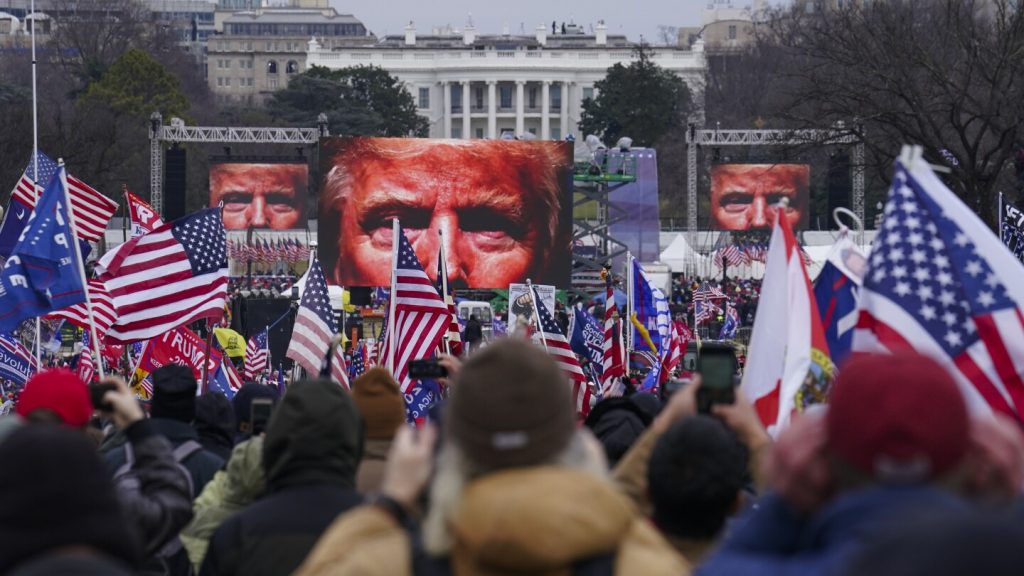The Supreme Court is set to hear two cases that may impact the criminal prosecution of former President Donald Trump for his attempts to overturn the 2020 election. The first case involves the charge of obstruction of an official proceeding, which has been brought against 330 individuals, including Trump, for disrupting Congress’ certification of Joe Biden’s victory. The second case will address whether Trump has “absolute immunity” from prosecution. Trump is currently facing charges in New York for hush money and in Georgia and Florida for election interference and mishandling classified documents, respectively.
One of the key issues in the case is whether the obstruction charge, which carries up to 20 years in prison, can be applied to individuals involved in the Capitol riot on Jan. 6, 2021. The charge is among the most common felony charges brought against those involved in the insurrection. Roughly 170 defendants have been convicted of obstructing Congress’ certification of the election, including leaders of extremist groups. Some defendants have had their sentencings delayed pending the Supreme Court’s ruling, and some have even been granted early release amid concerns over potential longer sentences.
The case revolves around the interpretation of a law enacted in 2002 to address the collapse of Enron Corp. Fischer’s lawyers argue that the law was meant to prevent the destruction of records and does not cover his actions during the Capitol riot. However, the Justice Department contends that the law was intended to address all forms of corrupt obstruction of an official proceeding, including Fischer’s alleged involvement in the violent riot at the Capitol. Lower court judges have differed in their opinions on the matter, with some allowing the charge to stand and others dismissing it.
The two sides in the case provide conflicting narratives regarding Fischer’s actions on Jan. 6. Fischer’s lawyers claim he was not part of the mob that stormed the Capitol and only entered after Congress had recessed. On the other hand, the Justice Department cites video evidence of Fischer yelling “Charge!” before pushing through a crowd and crashing into a police line. Additionally, prosecutors point to text messages and social media posts as evidence of Fischer’s involvement in the violence. Meanwhile, a group of 23 Republican members of Congress have expressed concerns about the administration’s use of the obstruction charge, arguing that it could lead to politicized prosecutions.
Overall, the outcome of these cases could have significant implications for Trump’s legal troubles and the broader prosecution of individuals involved in the Capitol riot. The Supreme Court’s rulings on the charges of obstruction of an official proceeding and absolute immunity for Trump will likely shape the future of the criminal cases stemming from the events of Jan. 6, 2021. As the legal battles continue, the nation awaits the decisions of the highest court and the potential impact on the ongoing investigations and prosecutions related to the Capitol riot.


